Liquid Handling & Fluidic Components for Chromatography
MK Fluidic Systems designs and manufactures precision syringes, probes, valves, tubing assemblies, and sub-assembly modules for the chromatography industry. Our products are made of the highest quality materials and available for a wide range of applications, including: liquid/gas chromatography, clinical diagnostics, and autosamplers.
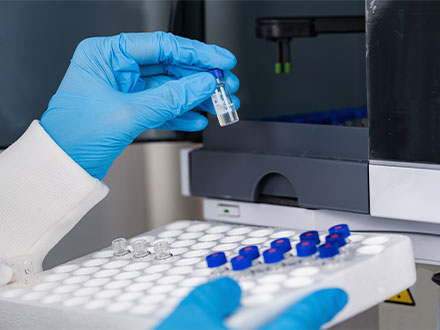
A FLUID SYSTEM MANUFACTURER THAT UNDERSTANDS THE CHROMATOGRAPHY INDUSTRY
When working in the chromatography industry, it’s important your equipment is methodically designed with your system needs in mind. Even small contaminants can cause big problems in the detection of analytes or degrade the performance of a system as a whole. MK Fluidic Systems ensures that all of our components are thoroughly cleaned, well handled, and quickly packaged to prevent contamination.
At MK Fluidic Systems, our extensive experience makes it easy to collaborate with us to design and engineer all of your custom fluid handling component needs. By working with MK Fluidic Systems and selecting quality components, you ensure that your equipment performs safely, accurately, and confidently.
CHROMATOGRAPHY FLUID SYSTEM PRODUCTS

SYRINGES
We offer a broad range of syringe designs and seal configurations for many applications. We utilize high-purity borosilicate glass and fluoropolymers in our wetted materials to the ensure precision, accuracy, and cleanliness of each sample injection. With injection volumes of 10µL to 50mL, our products can meet your dispensing requirements.
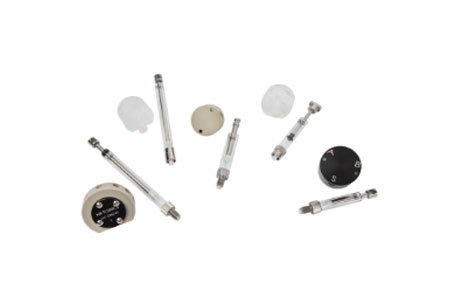
VALVES
Available in loop, switching, and distribution configurations, our valves are capable of meeting your system specifications. Improve the purity of your sample loop by utilizing inert materials such as PTFE, PCTFE, PFA, UHMW-PE, and PEEK.
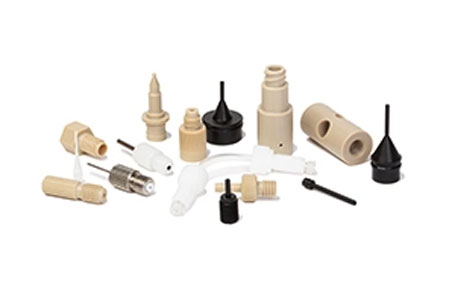
TUBING & FITTINGS
We offer flanged and flangeless fittings with our tubing sets and can accommodate custom requests for chromatography applications. Fittings are available in both flat-bottom and HPLC/cone-tipped designs. All can be sold separately or assembled to fit your specifications.
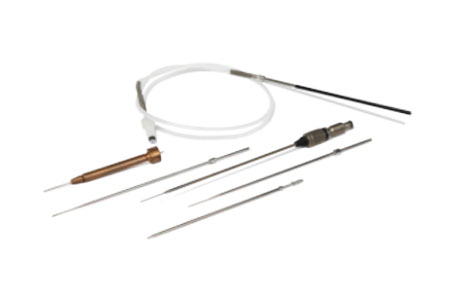
NEEDLES, PROBES, & PIPETTES
These critical components of the sample flow-path are responsible for transferring the sample between the vial and instrument inlet. Consistent injection volumes and minimized carryover are critical for reliable results.
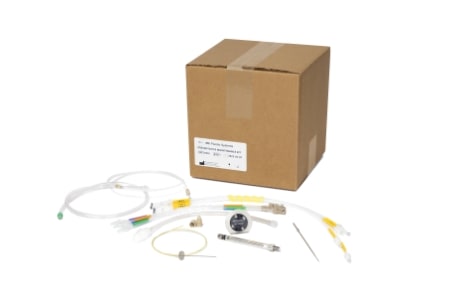
SERVICE KITS
Providing the chromatography industry with a convenient package for ease of servicing replacement parts. These kits include all of the syringes, valves, fittings, tubes, needles, filters, fittings, and more that are a part of the regular service/maintenance program for your instrument. Simplify your purchasing and kitting requirements by having everything you need in one prepackaged and labeled kit.
COMMON LIQUID HANDLING SYSTEM APPLICATIONS FOR CHROMATOGRAPHY
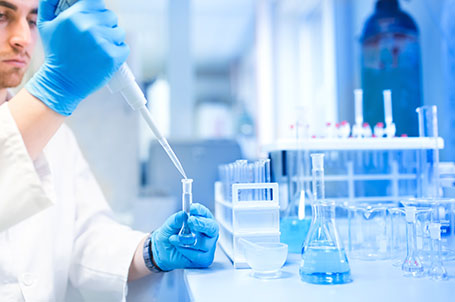
Clinical & Pharmaceutical Testing
Chromatography plays an important role in the safety of pharmaceuticals. Pharmaceutical companies use chromatography to quantify and analyze compounds for contaminants. It can also be used to determine which antibodies are the best for fighting and neutralizing certain diseases. In tandem with mass spectrometry, liquid chromatography has revolutionized clinical laboratory testing. While mass spectrometry can identify analytes by two physical properties, precursor and product ion mass, another property is added when used in tandem with liquid chromatography to identify the analyte even more accurately.
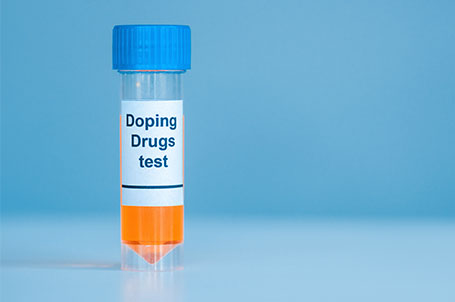
Drug Testing
Chromatography is regularly used in clinical toxicology. Chromatography’s ability to separate and identify the different components of a substance make it well suited for detecting performance-enhancing or illicit drugs in urine samples. In applications such as these, limiting carryover is especially important to reduce the risk of false-positives.
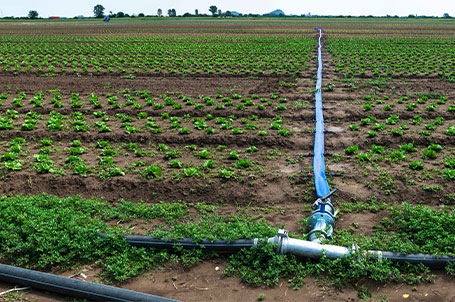
Environmental Safety
Industry professionals must adhere to numerous environmental safety precautions. Perfluoroalkyl substances, also known as PFAS, have become a persistent threat to the human body and the environment. Nitrates and other forms of agricultural runoff are common causes of local wildlife and habitat destruction. By using solid-phase extraction, liquid chromatography, and mass spectrometry, instruments can detect the presence of these chemicals in the environment and our drinking water, even at very low limits.
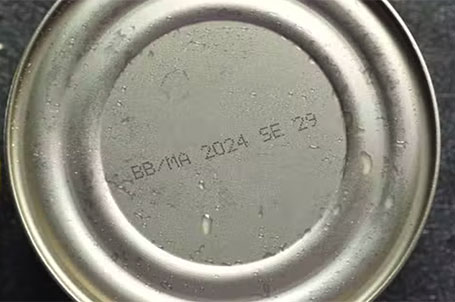
Food & Beverage Safety
In the food and beverage industry, chromatography can be used to determine everything from expiration dates and detecting the presence of toxins to product purity. This testing not only allows manufacturers to know that each bottle/package of their product is consistent, but that the ingredients are conforming and not tainted or counterfeit.